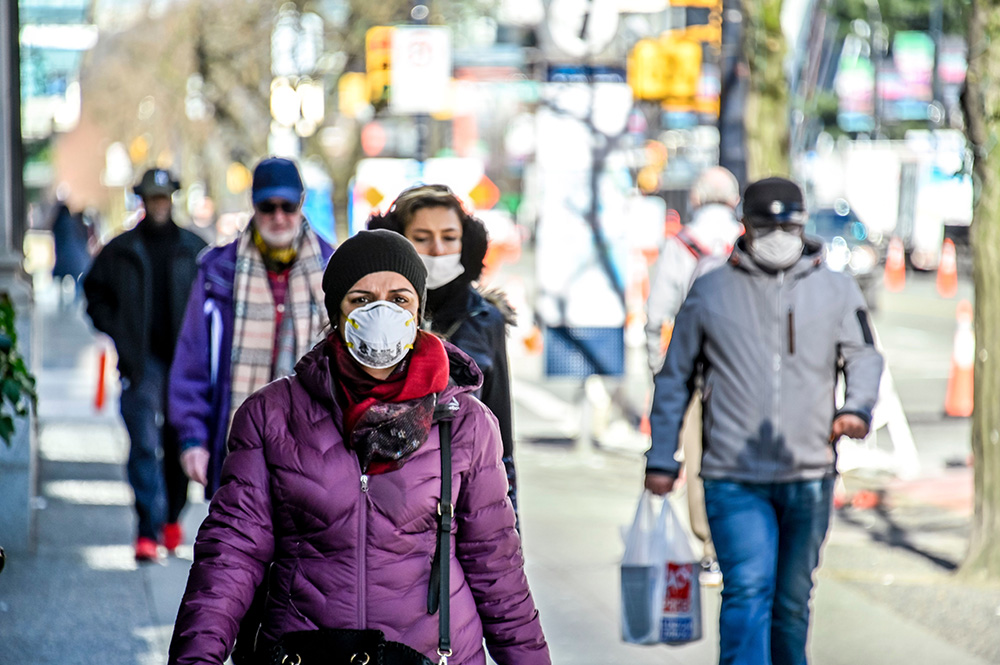Compiled by veteran medical journalist Brian Owens, this roundup of some of the newest science on the COVID-19 pandemic, straight from the scientific journals, is presented by Hakai Magazine in partnership with The Tyee.
Prepare for the long-term effects
Rehabilitation clinics should prepare for the long-term effects of the COVID-19 pandemic. Looking at the aftermath of the 2003 SARS and 2012 MERS outbreaks, researchers found that many survivors faced months or years of long-term respiratory problems and mental health issues. Similar effects have already been seen in COVID-19 survivors, and rehabilitation clinics should prepare for these long-term effects.
Journal of Rehabilitation Medicine, June 9, 2020
Most COVID-19 clinical trials have big shortcomings
The majority of the early clinical trials of potential treatments for COVID-19 have major flaws that limit their value. Looking at more than 200 trials underway at the end of March, researchers found that many lacked important features such as control groups, patient and clinician blinding, and clear definitions of success or failure.
Widespread mask use would slow pandemic
Population-wide use of facemasks would keep the virus reproduction number — the average number of new people infected by each case — below one. Combined with lockdowns, this would prevent future waves of infection, according to a modelling study. The researchers found that even homemade masks with limited effectiveness can dramatically reduce infection rates if worn by enough people.
Proceedings of the Royal Society A, June 10, 2020
We’re sleeping longer, but not better
Relaxed school and work schedules and more time spent at home has changed sleep patterns. Throughout the pandemic people have been sleeping more, on average, and experiencing less “social jetlag,” meaning the difference in sleep timing and duration between work and non-work days is smaller. There has, however, also been a drop in self-reported sleep quality.
Current Biology, June 10, 2020
Current Biology, June 10, 2020
Testing the tests, and coming up short
Since SARS-CoV-2, the virus that causes COVID-19, has the ability to mutate, it is important to check that diagnostic tests are able to correctly identify changing versions of the virus. Researchers at York University looked at 27 different testing methods and found that seven had potential mismatches that could lead to false-negative results.
Royal Society Open Science, June 10, 2020
Triaging business openings
Which types of businesses should be the first to open when lockdowns are eased, and which the first to close if a second wave hits? Researchers measured 26 types of businesses, ranking them by both their usefulness and risk. Vital forms of commerce that are relatively uncrowded fared the best in the study; less significant types of businesses that generate crowds performed worse. Banks, being economically important and relatively uncrowded, came top of the list, while more crowded but less important places like liquor stores, cafes and gyms came in at the bottom.
Proceedings of the National Academy of Sciences, June 10, 2020
Who stockpiled toilet paper?
An international survey of personality traits and pandemic behaviour has found that there are characteristics associated with toilet paper hoarding. People who scored highly for emotionality (feeling worried and anxious a lot) along with conscientiousness (those who are organized and diligent) were more likely to stockpile toilet paper during the early stages of the pandemic.
Social media use linked to prejudice against Asian Americans
The more people believe their most used daily social media is fair, accurate, presents the facts and is concerned about the public, the more they see Chinese Americans as a threat, according to a survey in the United States. Women were more likely to see Chinese Americans as a threat, while men experience higher levels of intergroup anxiety — actual negative interactions with other people. Unexpectedly, respondents who identified as Democrats were more likely than Republicans to perceive Chinese Americans as a symbolic threat.
Frontiers in Communication, June 12, 2020
Children half as susceptible, and show fewer symptoms
People under the age of 20 are approximately half as susceptible to COVID-19 as those over 20, and far more of them show no symptoms of the disease. Clinical symptoms appear in just 21 per cent of those between 10 and 19, rising to 69 per cent in those over the age of 70.
Nature Medicine, June 16, 2020
Maternal transmission is rare
Transmission of COVID-19 from mother to baby during pregnancy is uncommon, and those babies that are infected are generally asymptomatic. Despite early guidance that it was safer to give birth by a caesarian section, to isolate the mother from the baby, and to feed the baby formula rather than milk, a review of the evidence found that the rate of infection is no greater when the baby is born vaginally, breastfed, or allowed contact with the mother.
One in five people have an underlying condition that increases risk
An estimated 1.7 billion people — 22 per cent of the world’s population — have at least one underlying health condition that puts them at an increased risk of severe COVID-19. The share of the population with increased risk is highest in countries with aging populations, African countries with high HIV/AIDS prevalence, and small island nations with high numbers of diabetics.
The Lancet Global Health, June 15, 2020 ![]()
Read more: Coronavirus, Science + Tech















Tyee Commenting Guidelines
Comments that violate guidelines risk being deleted, and violations may result in a temporary or permanent user ban. Maintain the spirit of good conversation to stay in the discussion.
*Please note The Tyee is not a forum for spreading misinformation about COVID-19, denying its existence or minimizing its risk to public health.
Do:
Do not: